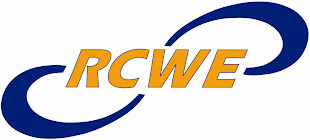Document Type: Grants Notice Funding Opportunity Number: HRSA-12-079 Opportunity Category: Discretionary Posted Date: May 23, 2012 Creation Date: May 23, 2012 Original Closing Date for Applications: Jun 22, 2012 Current Closing Date for Applications: Jun 22, 2012 Archive Date: Aug 21, 2012 Funding Instrument Type: Grant Category of Funding Activity: Health Category Explanation: Expected Number of Awards: 246 Estimated Total Program Funding: $45,000,000 Award Ceiling: Award Floor: CFDA Number(s): 93.925 -- Scholarships for Health Professions Students from Disadvantaged Backgrounds Cost Sharing or Matching Requirement: No
Eligible Applicants
- Native American tribal organizations (other than Federally recognized tribal governments)
Others (see text field entitled "Additional Information on Eligibility" for clarification)
Additional Information on Eligibility:
- Eligible applicants are accredited schools of medicine, osteopathic medicine, dentistry, nursing (as defined by section 801 of the PHS Act), pharmacy, podiatric medicine, optometry, veterinary medicine, public health, chiropractic, allied health, a school offering a graduate program in behavioral and mental health practice, or an entity providing programs for the training of physician assistants. For further information refer to the Public Health Service Act, Sections 737 and 799B. Faith-based and community-based organizations, Tribes, and tribal organizations are eligible to apply if all other eligibility requirements are met.
Agency Name
- Health Resources & Services Administration
Description
- The Scholarships for Disadvantaged Students (SDS) program promotes diversity among health profession students and practitioners by providing scholarships to full-time students with financial need from disadvantaged backgrounds, enrolled in health professions and nursing programs. Participating schools are responsible for selecting scholarship recipients, making reasonable determinations of need, and providing scholarships that do not exceed the allowable costs (i.e., tuition, reasonable educational expenses and reasonable living expenses with a cap for the total scholarship award of $15,000).
Link to Additional Information
If you have difficulty accessing the full announcement electronically, please contact:
- CallCenter@HRSA.GOV
CallCenter@HRSA.GOV
Contact HRSA Contact Center at 877-Go4-HRSA/877-464-4772 or email
Synopsis Modification History
There are currently no modifications for this opportunity.




 A nonprofit 501(c)3 organization, the RCWE’s mission is to connect people with jobs through collaborative workforce development efforts and strong partnerships with economic development, business, education, and government sectors in the Northwest Pennsylvania region.
A nonprofit 501(c)3 organization, the RCWE’s mission is to connect people with jobs through collaborative workforce development efforts and strong partnerships with economic development, business, education, and government sectors in the Northwest Pennsylvania region.